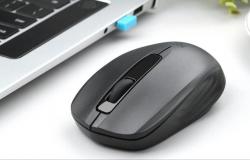Do they really surgeons At the beginning of the century they operated with the technique they called laparoscopy? I have no doubt that in 50 years, the surgeons 2075 will ask themselves, with curiosity, this question. I just hope they also point out that they were primitive but very skilled to be able to operate without the help of robots.
Computer-assisted surgeries represent a leap in our profession
For its ability to improve accuracy and reduce risks associated with surgeries traditional. During the surgery, the 3D imaging system guides the surgeon in real time, allowing him to make precise incisions and minimize damage to surrounding tissues. Furthermore, the systems surgery Computer-assisted movements are usually already equipped with robotic instruments that allow extremely delicate movements.
In this scenario, augmented reality, navigation guides, image fusion, 3D printing, biosensors and artificial intelligence Applied to surgical practice, they are the great innovations that are completely changing the history of tumor ablation. And we know that this is just beginning. The evolution of the surgeries towards increasingly less aggressive and invasive practices has many advantages. Among them, the reduction of possible complications, compared to the surgery open; less hospital stay patientsreducing recovery processes, and less painful post-operative periods.
Artificial intelligence demonstrates its ability to analyze medical data
In addition to identifying patterns and giving health professionals very valuable information for decision making. The changes generated demand a new approach to medical practice. We must work on the formation of multidisciplinary teams, on the integration of artificial intelligenceaugmented reality, and robotics to carry out medical diagnoses and procedures.
Data analysis and the use of predictive models will allow us to increasingly move towards risk mitigation before
symptoms appear. However, it is necessary to remember that the artificial intelligence does not replace experience and judgment doctor, but rather complements them and offers new tools. More precise, efficient and personalized medical care must be our goal.
Therefore, in addition to technology and artificial intelligenceneed intelligence emotional. Know how to listen to our patients and developing empathy are fundamental skills for medicine more human than we want. I do not know anymore
Try to work with clinical records. It is about addressing the specific history of each person, with first and last name, and considering each particular case, in order to provide the best answers.

We need to work from your genetic information and consider your particular needs. Far from dehumanizing, technology allows us to be closer and put the person at the center of the scene. In this sense, the communication between doctor–patient It is a fundamental pillar. It is a fundamental requirement today that professionals pay attention to the
intelligence emotional and communication skills as well as scientific and technical knowledge.
I am one of those who believes that the advancement of technology makes surgery more humane.
If one uses technology correctly, and does not lose empathy to communicate with the patient and colleagues, healing can be achieved while doing less harm.
New trends allow us not only to do things better, but also to do better things.

* Mariano Giménez. Professor of Surgery at the Faculty of Medicine (UBA). Director of the Chair of Excellence in Percutaneous Surgery at the University of Strasbourg, France.








